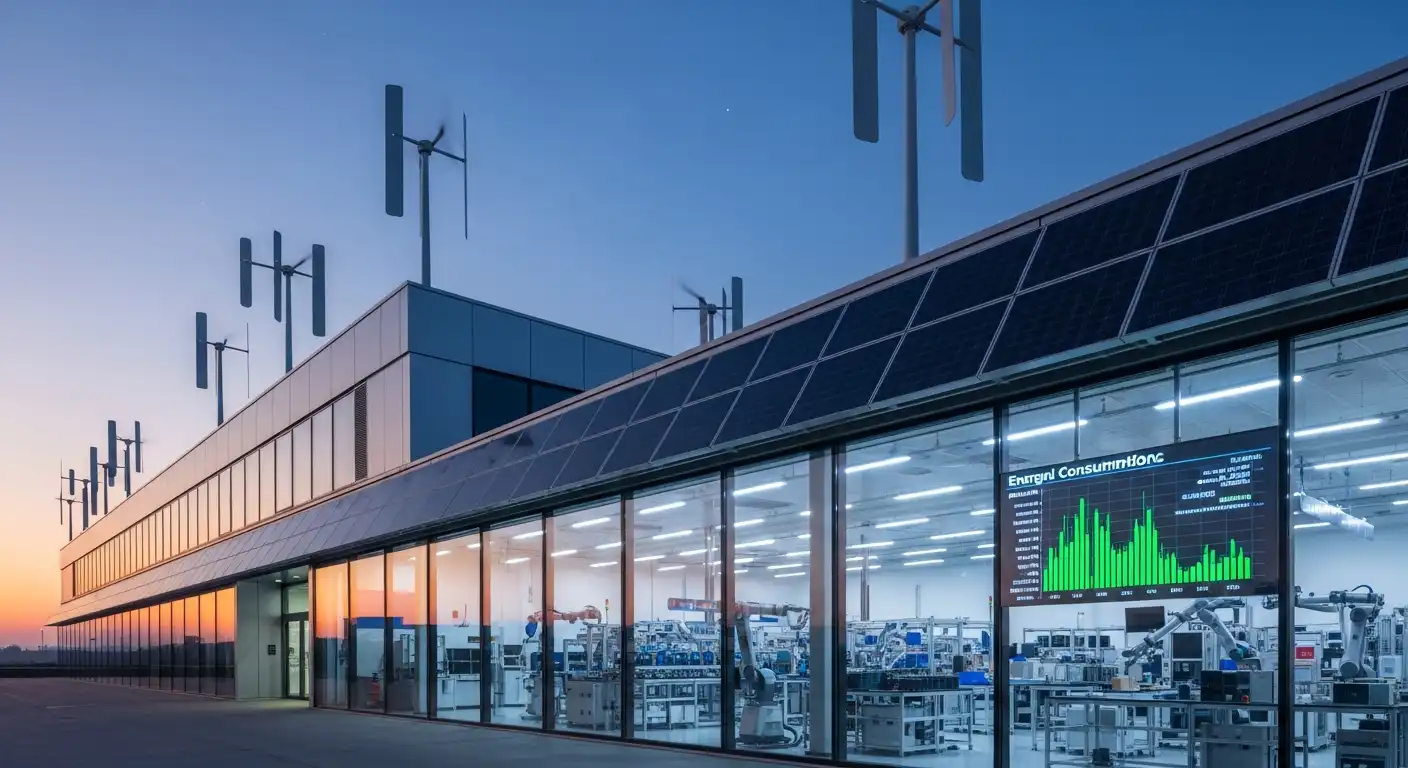Energy-efficient manufacturing has become a pivotal aspect of industrial practices, aiming to optimize energy consumption, reduce environmental impact, and foster sustainability. This comprehensive exploration delves into the intricacies of energy-efficient manufacturing, unraveling its fundamental principles, key components, recent innovations, notable applications, and transformative impact on reshaping the landscape of industrial production and environmental stewardship.
Understanding Energy-Efficient Manufacturing
Energy-efficient manufacturing focuses on minimizing energy consumption and waste throughout production, from raw material extraction to final product assembly. This approach integrates advanced technologies, process optimization, and sustainable practices to make a more environmentally friendly and economically viable manufacturing sector.
Key Components of Energy-Efficient Manufacturing
The core components of energy-efficient manufacturing contribute to its functionality, sustainability, and overall impact on the industrial production process:
- Energy Audits and Monitoring Systems: Conducting regular energy audits and implementing monitoring systems to identify energy-intensive processes, inefficiencies, and areas for improvement.
- High-Efficiency Equipment and Technologies: Utilizing advanced machinery, sensors, and control systems to optimize energy usage, reduce waste, and enhance production efficiency.
- Renewable Energy Integration: Incorporating on-site renewable energy sources, such as solar panels or wind turbines, to generate clean and sustainable power for manufacturing operations.
Recent Innovations in Energy-Efficient Manufacturing
Recent innovations have elevated energy-efficient manufacturing to new heights, addressing challenges and expanding its applications. Notable advancements include the integration of Industry 4.0 technologies, the development of smart manufacturing processes, and the utilization of artificial intelligence for process optimization.
Industry 4.0 Technologies
Integrating Industry 4.0 technologies, including the Internet of Things (IoT), data analytics, and cloud computing, enables real-time monitoring, predictive maintenance, and data-driven decision-making to enhance manufacturing efficiency.
Smart Manufacturing Processes
Smart manufacturing processes use sensors and automation to create more adaptive and responsive production systems. These processes optimize energy use, reduce downtime, and enhance the overall agility of manufacturing operations.
Artificial Intelligence for Process Optimization
Artificial intelligence (AI) applications for process optimization allow manufacturers to explore vast amounts of data, identify patterns, and create real-time adjustments to improve energy efficiency, reduce waste, and enhance production performance.
Notable Applications of Energy-Efficient Manufacturing
Energy-efficient manufacturing has diverse applications across various industrial sectors, contributing to reduced operational costs, enhanced sustainability, and improved competitiveness.
Lean Manufacturing Principles
Implementing lean manufacturing principles, which focus on eliminating waste and optimizing processes, contributes to energy efficiency by streamlining production workflows and minimizing resource consumption.
Sustainable Supply Chain Management
It extends beyond the factory floor to include sustainable supply chain practices, such as responsibly sourcing materials, reducing transportation-related emissions, and fostering circular economy principles.
Challenges in Energy-Efficient Manufacturing
Despite significant advancements, it faces challenges that impact its widespread adoption and effectiveness. Addressing these challenges is crucial for the continued growth and integration of sustainable practices in the industrial sector.
Initial Capital Investment
The upfront costs associated with upgrading equipment, implementing new technologies, and conducting energy audits can be barriers for some manufacturers. However, the long-term benefits of reduced operational costs and improved sustainability often outweigh these initial investments.
Workforce Training and Cultural Shift
Transitioning to energy-efficient manufacturing practices requires a skilled workforce and a cultural shift within organizations. Training programs and fostering a culture of sustainability are essential for successful implementation.
Future Trends in Energy-Efficient Manufacturing
The trajectory of energy-efficient manufacturing indicates exciting trends that will further redefine its capabilities and applications. These trends promise to enhance efficiency, promote sustainability, and contribute to the overall resilience of industrial production.
Circular Economy Practices
The adoption of circular economy practices, including product design for reuse and recycling, is expected to significantly contribute to energy-efficient manufacturing by reducing waste and extending the lifecycle of materials.
Additive Manufacturing and 3D Printing
The rise of additive manufacturing and 3D printing technologies offers opportunities for more energy-efficient production processes by minimizing material waste, enabling on-demand manufacturing, and creating complex geometries with less energy consumption.
Conclusion
Energy-efficient manufacturing is pivotal in the global effort to create a more sustainable and efficient industrial sector. From energy audits and high-efficiency equipment to integrating Industry 4.0 technologies and circular economy practices, the impact of these advancements extends across diverse manufacturing processes. Despite challenges, ongoing innovations in smart manufacturing, artificial intelligence, and sustainable supply chain management signal a promising future for energy-efficient manufacturing. As research and development push the boundaries of what is possible, it is poised to play a central role in shaping a cleaner, more efficient, and technologically advanced future for industrial production.





